Discover Anseo.net - If I were the Minister for Education
Anseo.net - If I were the Minister for Education

Anseo.net - If I were the Minister for Education
Author: Simon Lewis
Subscribed: 99Played: 5,025Subscribe
Share
© Simon Lewis
Description
How many times have you said to yourself, "If I were the Minister for Education…?" Well I do! Rather than grumble to myself, I decided to podcast my thoughts on ways I'd change the primary education system in Ireland. Every episode I'll take on a different theme, give some background and hopefully come to some conclusions by the end.
simonmlewis.substack.com
simonmlewis.substack.com
278 Episodes
Reverse
In this episode of ‘If I Were the Minister for Education,’ I discuss the tumultuous journey of the Irish Primary Language Curriculum since its inception in 2016. I explain the confusing and unworkable nature of the curriculum, which stemmed from panic-induced reforms after a minor dip in Ireland’s PISA scores in 2009. I highlight the chaotic development process plagued by bullying allegations and mass resignations within the NCCA. I describe the practical challenges teachers faced with the original curriculum’s complex and unmanageable format, likening it to an accordion. Despite efforts by the PDST to provide clarity, the curriculum remains inadequately understood and halfway implemented a decade later. I underscore the recurring patterns of vagueness and panic-driven educational reforms in Ireland, leaving teachers to navigate and adapt to these changes on their own.00:00 Introduction to the Podcast00:47 The Primary Language Curriculum: A Decade of Confusion02:15 The Roots of the Curriculum Chaos05:07 The PISA Panic and Its Aftermath09:56 The Chaotic Development Process15:13 The Unmanageable Curriculum Rollout21:13 Teachers’ Struggles and Adaptations23:55 Reflections and Future Concerns27:08 Conclusion and Farewell This is a public episode. If you'd like to discuss this with other subscribers or get access to bonus episodes, visit simonmlewis.substack.com/subscribe
I couldn’t think of a better title to this week’s podcast which is all about admin work. Unfortunately, the biggest change to my job in the last decade or two is the crazy increase in administrative work and constant additions to my workload. My brain physically can’t hold it all so I decided to make it my aim to outsource my brain. This episode goes through some techy tools to help with admin. If nothing else, it will make a good sleeping aid. This is a public episode. If you'd like to discuss this with other subscribers or get access to bonus episodes, visit simonmlewis.substack.com/subscribe
In this episode I offer a comprehensive review of Irish primary education for the year 2025. I cover various educational policies, initiatives, and challenges, spanning teacher shortages, special education crises, the hot meal scheme, religious influences in schools, and the controversial snow days. I discuss new policies introduced by the government, the effectiveness of the Department of Education, and the impact of external events like the conflict in Gaza on school environments. Despite the challenges, I’m, as always, cautiously optimistic for 2026!00:00 Introduction and Podcast Overview00:50 Annual Review of the Primary School Year02:49 January: Snow Days and New Government07:09 February: Controversies and Challenges11:08 March: The Cluster Games and Special Education16:37 April: Teacher Burnout and Financial Crisis22:52 May: Religion in Schools Debate26:45 June: End of School Year and ICT Grant27:52 July: Teacher Shortages and National Convention31:24 August: Secretary and Caretaker Strikes34:44 September: Strike Lessons and Hot Meal Scheme37:34 October: School Census and Budget39:59 November: IPPN Conference and New Minister41:44 December: Reflections and Looking Forward This is a public episode. If you'd like to discuss this with other subscribers or get access to bonus episodes, visit simonmlewis.substack.com/subscribe
Every time I open Google’s NotebookLM, it gets better and better. The graphic above was created using the app and I think it did a good job of summarising the year in a single graphic.The podcast didn’t do a bad job either though it fell into temptation a couple of times referring to issues at second level. However, all in all, I’m pretty pleased with it, and I’d love to know what you think. This is a public episode. If you'd like to discuss this with other subscribers or get access to bonus episodes, visit simonmlewis.substack.com/subscribe
In this episode of 'If I were the Minister for Education', I delve into the integration of AI in the Irish Primary Education System joined by Amanda Jolliffe, the lead of Microsoft Ireland's Dream Space, to discuss the influence of AI on education and the various innovative tools and programs offered by Dream Space. We explore how AI can assist both teachers and students, from lesson planning to creative learning activities. The discussion covers not only the benefits and applications of AI but also the importance of critical thinking, ethical use, and equitable access to technology in schools. The episode also highlights the significance of professional learning for teachers and forthcoming initiatives like a new Dream Space hub focused on skilling and cloud operation infrastructure.More about Dream Space: https://dreamspace.microsoft.com/en-us/dreamspace/irelandOide AI Hub: https://www.oidetechnologyineducation.ie/ai-hub/ This is a public episode. If you'd like to discuss this with other subscribers or get access to bonus episodes, visit simonmlewis.substack.com/subscribe
In this episode of ‘If I Were the Minister for Education,’ I explore the recent survey conducted by the Irish Department of Education concerning primary school patronage. I also discuss the legacy left by former Minister Helen McEntee and give my initial thoughts on the new Minister Hildegarde Naughton. I raise questions about the survey’s efficacy, its democratic value, and its alignment with the constitutional rights of children. I provide a historical context on the secular roots of Irish primary education and argue for state-run, multi-denominational schools. 00:00 Introduction to the Podcast00:31 A New Minister for Education01:37 Legacy of Helen McEntee02:30 The Primary School Ethos Survey03:53 Survey Questions and Parental Choices06:25 Critique of the Survey’s Purpose09:08 Human Rights and Education23:52 Historical Context of Religious Schools26:25 Conclusion: The Need for Genuine Reform This is a public episode. If you'd like to discuss this with other subscribers or get access to bonus episodes, visit simonmlewis.substack.com/subscribe
Debunking Myths in Special Education: A Live Discussion with Debbie O’Neill In the latest episode of ‘If I Were the Minister for Education,’ I welcome Debbie O’Neill, principal of a school for primary and secondary students with mild general learning disabilities. This live podcast covers topics ranging from the special education system in Ireland, the challenges faced by special schools, and debunking common myths surrounding special education. Key points include the lack of specialised resources and funding, misconceptions about inclusion, and the need for more support for students and staff. Debbie and I also discuss the importance of creating an environment where every student feels included and valued, regardless of their educational setting. Timings: 00:00 Introduction and Welcome 01:45 Special Education Focus 02:17 Debunking Myths in Special Education 03:31 Debbie O’Neill’s Journey in Special Education 05:14 Challenges and Realities of Special Schools 11:45 Inclusion vs. Integration 17:02 Resource Allocation in Special Schools 29:32 Challenges in Special Schools 29:44 Resourcing Issues in Special Classes 30:25 In-School Therapy Program 32:45 Debunking Myths About Special Schools 33:29 Importance of Community in Special Schools 49:15 Special Schools and Extracurricular Activities 50:38 Final Thoughts and Future Plans This is a public episode. If you'd like to discuss this with other subscribers or get access to bonus episodes, visit simonmlewis.substack.com/subscribe
It was too obvious not to do it. Let AI summarise the Department of Education’s guidance. Sure, while I’m at it, I may as well use AI to create the show notes:Explore the safe, ethical, and responsible use of AI for primary educators and school leaders. We share practical examples, such as how a second class teacher can use Generative AI (GenAI) to create curriculum-aligned math activities, or how a fifth class teacher uses GenAI for visual support in Irish lessons. Learn strategies for integrating AI, including the essential 4P framework (Purpose, Planning, Policies, Practice). Remember to maintain human oversight and review all AI outputs for accuracy and bias. Resources like the DALI4US project support data literacy for primary teachers.😱Eek… what about a summary using Notebook LM?Woah! (Ignore the American spelling)Artificial Intelligence in Schools: A Strategic BriefingExecutive SummaryThis briefing synthesizes the core principles, practical applications, and strategic recommendations outlined in the “Guidance on Artificial Intelligence in Schools.” The guidance establishes a foundational framework for school leaders and teachers to navigate the integration of Artificial Intelligence (AI), particularly Generative AI (GenAI), into the educational landscape. It posits that while AI offers significant potential to support teaching, learning, and school administration, its adoption must be responsible, planned, and informed to mitigate inherent risks related to safety, privacy, bias, and academic integrity.The central tenet of the guidance is the principle of human agency and oversight, asserting that AI should serve as a tool to complement and enhance, but never replace, the professional judgment of educators. A key strategic recommendation is the adoption of the 4P Approach (Purpose, Planning, Policies, Practice) as a practical framework for implementation. This approach advocates for aligning AI use with clear educational goals within a school’s digital learning plan, reviewing and updating existing school policies rather than creating new ones, and embedding critical, ethical practices into daily use. The document is designated as a “living document,” acknowledging the rapid evolution of AI and committing to ongoing review and updates based on emerging research, regulatory changes like the EU AI Act, and feedback from the school system.Core Principles for Ethical AI AdoptionThe guidance establishes a clear ethical framework for the use of AI in schools, grounded in seven key requirements for trustworthy AI. These principles are essential for ensuring that AI is deployed in a safe, fair, and effective manner.1. Human Agency and OversightThis is the cornerstone principle, emphasizing that AI systems must empower humans and operate under their control.* The “Human in the Loop”: Educators must act as the final checkpoint, systematically reviewing and validating all AI-generated outputs for accuracy, bias, and reliability.* Mitigating Risks: Human oversight is crucial for managing the risks of GenAI, which include:* Hallucinations: Outputs that seem plausible but are factually incorrect.* Bias: AI models can reflect and amplify biases present in their training data, potentially disadvantaging certain groups.* Disinformation: The capacity of GenAI to rapidly create and scale misinformation.* Decision-Making: AI should support, not replace, human judgment and decision-making, especially in high-stakes educational contexts.2. Privacy and Data GovernanceProtecting student and staff data is a critical compliance and ethical challenge.* Confidentiality: Content used in a request to a GenAI tool is generally not confidential by default and may be used to train the model. All data provided should be considered public unless otherwise stated.* Data Protection: The inputting of sensitive, proprietary, or personal data into AI systems should be avoided. All use must comply with GDPR.* Anonymization: If data is properly anonymized and cannot be re-linked to an individual, it may not be subject to GDPR principles.3. Technical Robustness and SafetyAI systems deployed in schools must be dependable, secure, and perform as expected.* EU AI Act: The EU AI Act (2024) is the world’s first comprehensive AI law. It classifies some uses of AI in education as “high risk,” including systems for evaluating learning outcomes, assessing educational levels, or determining access to education.* Safeguarding: AI introduces unique safeguarding challenges, such as the generation of harmful deepfakes (fake images or voices) and the potential for covert, widespread bullying.4. TransparencyBuilding trust in AI requires clear communication about how and when it is being used.* Shared Expectations: Schools should be transparent with students, parents, and the wider community about the use of GenAI to establish shared expectations.* Age Restrictions: Many GenAI tools have minimum age requirements (e.g., 13, 16, or 18) and require parental consent for users under 18. Schools must verify and adhere to these platform-specific terms.5. Diversity, Non-discrimination, and FairnessAI tools must be carefully vetted to detect and mitigate inherent biases to ensure equitable outcomes for all learners.* Due Diligence: It is vital for educators to review and validate AI-generated content to ensure it is accurate, appropriate, and does not perpetuate societal biases present in training data.* Inclusion: AI should be used to support inclusive practices and Universal Design for Learning (UDL), ensuring all learners are appropriately challenged.6. Societal and Environmental WellbeingThe broader impact of AI must be considered as part of its responsible adoption.* Environmental Impact: The AI lifecycle consumes significant natural resources, including energy and water, contributing to carbon emissions. Educators should consider if non-AI tools can achieve comparable objectives.* Student Wellbeing: While AI can positively impact engagement, consideration must be given to potential negative impacts on physical and mental health. The EU’s Digital Services Act (DSA) and Better Internet for Kids (BIK+) strategy aim to create a safer online environment.7. AccountabilityClear policies and roles are fundamental to fostering accountability and responsible AI use.* Policy Foundation: Clear, accessible, and updated policies (such as the Acceptable Use Policy) help all stakeholders understand their roles and the consequences of misuse.Practical Applications of AI in the School EnvironmentThe guidance identifies numerous potential applications for AI across key domains of school activity, provided they are implemented within the ethical framework.DomainPotential Applications and ExamplesTeacher Planning & Preparation- Curriculum Design: Brainstorming ideas to embed literacy and numeracy into schemes of work.- Resource Generation: Creating activity ideas for physical resources or generating images to accompany a story.- Learning Design: Using AI analytics in quiz tools to identify gaps in student understanding and adjust lesson plans.- Differentiation: Scaffolding materials, such as creating model conversations at varying complexity levels for language classes.Teaching & Learning- Formative Assessment: Organizing student ideas from a brainstorming session into a mind map for group discussion.- Personalized Learning: Creating reading passages on a single topic at different complexity levels to suit individual needs.- Inclusion & UDL: Identifying differentiated activities and classroom supports for students on specific learning programs (e.g., L2LP).- Resource Creation: Generating vocabulary lists, text summaries, and quizzes aligned with the curriculum.School Leadership & Management- Strategic Planning: Summarizing documents to support school improvement planning or analyzing a resource inventory against the curriculum to identify gaps.- Policy Development: Assisting in the drafting and review of school policies by summarizing relevant guidelines and frameworks.- Data Analysis: Designing data collection tools like surveys to gather parent and student feedback to inform the school’s Digital Learning Plan.- Communication: Assisting in drafting newsletters, reports, and communications to stakeholders, including translation into home languages.A Strategic Roadmap for Implementation: The 4P ApproachOide Technology in Education (Oide TiE) proposes a practical 4P framework to guide schools in the effective integration of AI technologies.1. PurposeAI implementation should be driven by a clear educational purpose that directly supports teaching, learning, leadership, or management. This purpose must align with the school’s vision as articulated in its digital learning plan.2. PlanningThe use of AI must be integrated into the school’s mandatory Digital Learning Plan, which is a condition of the grant scheme for ICT infrastructure. Key planning questions for schools include:* How could AI improve teaching, learning, or leadership in our school?* What specific learner outcomes or experiences could be enhanced?* What are the potential risks, and how will they be managed and mitigated?* How will the ethical use of AI be approached and taught?* How will parents and the wider community be informed?3. PoliciesA separate, standalone AI policy is not required. Instead, schools should review and update existing policies to ensure they address the ethical, legal, and operational considerations of AI. Key policies for review include:* Privacy and Data Protection Policy: Must comply with data protection regulations.* Acceptable Use Policy (AUP): Should outline the ethical use of AI. The Webwise AUP generator has been updated to incorporate AI.* Code of Behaviour: Should be reviewed to ensure it reflects the ethical use of AI.* Bí Cineálta (Anti-Bullying) Policy: Should be updated to address the potential misuse of AI for bullying purposes.4. PracticeEducators should adopt a critical stance and reflect
I couldn’t think of a better guest than Rozz Lewis for this podcast interview about the new ERB subject in the curriculum, mainly because we talk about it endlessly in our house. Rozz is not only my wife, but she is one of the most knowledgeable people I know when it comes to this new subject and she is not afraid to hold back about her concerns as to how she thinks it could be more harm than good. I know I’m biased but I think you’ll be blown away by her thoughts on this less talked about new subject in the new curriculum. Rozz has also shared some links and resources, which you can find here:* The little guide to teachers of ethical education https://school-education.ec.europa.eu/bs/teach/teaching-materials/little-guide-teachers-ethical-education* Primary Religious Education-a new approach (Conceptual enquiry in Primary RE) by Clive Erricker( book)* Teaching Religious Education by Julian Stern (book)* Mastering Primary Religious Education by Maria James and Julian Stern (book)* Educate Together’s Summer EPV course on Conceptual Enquiry based approach in Ethical Education This is a public episode. If you'd like to discuss this with other subscribers or get access to bonus episodes, visit simonmlewis.substack.com/subscribe
In this episode, I explore the FORSA strike of school secretaries and caretakers, the glue of Irish schools. For over a century, their work has been underpaid, under-recognised, and taken for granted. Now, as they fight for pensions and parity, schools are left in vulnerable positions: keep schools open and potentially undermine the strike, or close them and face being the front page headline in the national media.From the long, neglected history of these roles, to the government’s last-minute panic, to INTO’s vague advice and the silence of management bodies, this strike exposes how fragile schools really are. And the truth is uncomfortable: by keeping things running, many may have already become SCABS. This is a public episode. If you'd like to discuss this with other subscribers or get access to bonus episodes, visit simonmlewis.substack.com/subscribe
Patrick Jackson is the CEO and Founder of Picker Pals World. The story goes that Patrick was walking his dog when he came across a seagull caught around the neck in some discarded fishing line. He managed to free the distressed bird. The very next day, in the same place, he found a litter picker-upper. Patrick started litter picking. Every day. Join me as I chat to Patrick about Picker Pals, the environment and how you can get involved in Picker Pals for your school. It’s not only one of the best and easiest things you could do, it might be one of the most important. This is a public episode. If you'd like to discuss this with other subscribers or get access to bonus episodes, visit simonmlewis.substack.com/subscribe
I've been writing about religious control of schools for well over a decade now, and I found that people tend to throw the same arguments out to me every time I talk about it. And there's a lot and lots of different arguments out there. The most common of which I think. And I could be wrong on this one, but the one that I'm hearing most of all these days is the argument that parents want Catholic schools, to which I'm always wondering what parents are they talking about because I'm a parent and I know lots of parents who don't want their children being being formed in a faith that isn't theirs.But that is not what I'm going to be talking about in this podcast, because another argument that I've heard and it gets thrown around, is Catholic schools internationally. And they often say that Catholic schools in England are well very sought after so we shouldn’t lose Catholic schools in Ireland. This is a public episode. If you'd like to discuss this with other subscribers or get access to bonus episodes, visit simonmlewis.substack.com/subscribe
We often hear the argument that the Church is determined to keep its grip on education. But if the sacraments were removed from the school day and shifted to after-school parish programmes, I’d argue the Catholic Church wouldn’t be the ones who’d lose out the most.There are, after all, a lot of people with a vested interest in keeping things just as they are.In this episode I explore who the real losers might be during Communion Season and then shift into another theory as to why divestment and reconfiguration can’t work This is a public episode. If you'd like to discuss this with other subscribers or get access to bonus episodes, visit simonmlewis.substack.com/subscribe
As educators, I wonder do we think much about the research that is done about education. I spoke with Paula Korsnakova and Eliane Segers from the IEA (International Association for the Evaluation of Educational Achievement) to talk about educational research, with a focus on reading from digital devices. The following links may be useful if you'd like to learn more:https://www.iea.nl/publications/teacher-resources/teaching-reading-comprehension-digital-world : Link to the new volume of Research for Educators on digital readinghttps://www.iea.nl/publications/iea-teachers-snippet/digital-reading-comp : Link to the new Teacher Snippet connected to the new bookAnd if you think these would be handy for listeners too:https://www.iea.nl/publications/iea-teacher-snippets : General Teacher Snippets pagehttps://www.iea.nl/publications/iea-teachers-snippets/iea-research-educators-more-book-series : General Research for Educators book series page This is a public episode. If you'd like to discuss this with other subscribers or get access to bonus episodes, visit simonmlewis.substack.com/subscribe
With the new MFL curriculum coming up, I thought I'd speak to someone who knows a thing or two about teaching languages. Róisín Brady from LanguageNut joined me to explain how she thinks the curriculum is going to work out.Find more: http://languagenut.com/ This is a public episode. If you'd like to discuss this with other subscribers or get access to bonus episodes, visit simonmlewis.substack.com/subscribe
In this episode, I explore the issue of underfunding in Irish primary schools, using the example of Sacred Heart Junior National School in Killinarden, Dublin, which announced it would operate remotely due to financial constraints. I delve into the history and structure of funding for primary schools, highlighting how the Department of Education's capitation grants have not kept pace with rising costs, such as electricity, gas, and wages. As usual I critique the patronage system and propose that the Department of Education should be directly responsible for the financial management of schools to address these ongoing challenges. All shownotes and data available on: https://simonmlewis.medium.com/a-school-may-have-to-close-due-to-lack-of-funding-how-has-it-come-to-this-9392b568977bGet my newsletter every fortnight to your inbox on: https://www.anseo.net/subscribe00:43 Case Study: Sacred Heart Junior National School03:01 Funding Challenges in Irish Primary Schools03:48 Detailed Analysis of School Funding06:31 Impact of Rising Costs on Schools09:29 Historical Context and Comparisons27:51 Proposed Solutions and Conclusion This is a public episode. If you'd like to discuss this with other subscribers or get access to bonus episodes, visit simonmlewis.substack.com/subscribe
On this week's show, I'll be talking about solar panels and schools, but maybe not from the angle you might be expecting. As many of you might know, the government decided that every school in the country would be given a set of solar panels. And the main talk from those in the profession has been why The decision was made that no matter what size your school is, you'll be getting the same number of solar panels.So very tiny schools will be getting the same number of solar panels as a very big school, which of course doesn't make any sense. However, I don't think I'd be able to make an entire podcast out. of that. And instead, I want to look at the solar panel issue from a different perspective. And that is who's going to own them.🗒️ Show notes are available on my Medium Blog: https://simonmlewis.medium.com/who-will-own-the-solar-panels-in-primary-schools-and-why-does-nobody-care-c12cf9ae1c20📌 Subscribe to my newsletter on https://www.anseo.net/subscribe This is a public episode. If you'd like to discuss this with other subscribers or get access to bonus episodes, visit simonmlewis.substack.com/subscribe
Rob Barnett is the co-founder and Chief Product Officer of Modern Classrooms Project, a really interesting project which, at its core, tries to use technology for better human interaction and relationships in the classroom. Rob is a hugely impressive educator as you will hear in this episode but you can also watch him at this TEDx talk.Rob has also written a book, Meet Every Learners' Needs and has developed a very interesting tool called Insta-Lesson. I'd recommend you look at both! This is a public episode. If you'd like to discuss this with other subscribers or get access to bonus episodes, visit simonmlewis.substack.com/subscribe
Despite my detective work, it looks like I was completely wrong about who the next Minister for Education was going to be and it's Helen McEntee who is our education minister.Join me as I write a letter telling Helen McEntee what I would love to see happening in the education system as she takes over from a depressing almost-decade of neglect. This is a public episode. If you'd like to discuss this with other subscribers or get access to bonus episodes, visit simonmlewis.substack.com/subscribe
In this podcast episode, I interview Muireann Sadlier, the Director of Cyber Smarties Ireland, discussing the importance of keeping children safe online while teaching them to use the internet positively. Sadlier shares her extensive background in education, focusing on wellbeing and behaviour, and introduces Cyber Smarties, an app designed for primary schools that supports children's social skills and online safety. We explore alarming statistics on children's online experiences, the challenges of managing screen time, and the need for proactive strategies to teach children responsible online behavior. Cyber Smarties offers a monitored environment for children to interact safely and learn positive social interactions. The discussion also touches on broader themes of technology's role in education and parenting, and the potential benefits of using apps like Cyber Smarties as part of a comprehensive approach to digital literacy and well-being.You can find our more about Cyber Smarties Ireland here: https://cybersmarties.ie/ This is a public episode. If you'd like to discuss this with other subscribers or get access to bonus episodes, visit simonmlewis.substack.com/subscribe


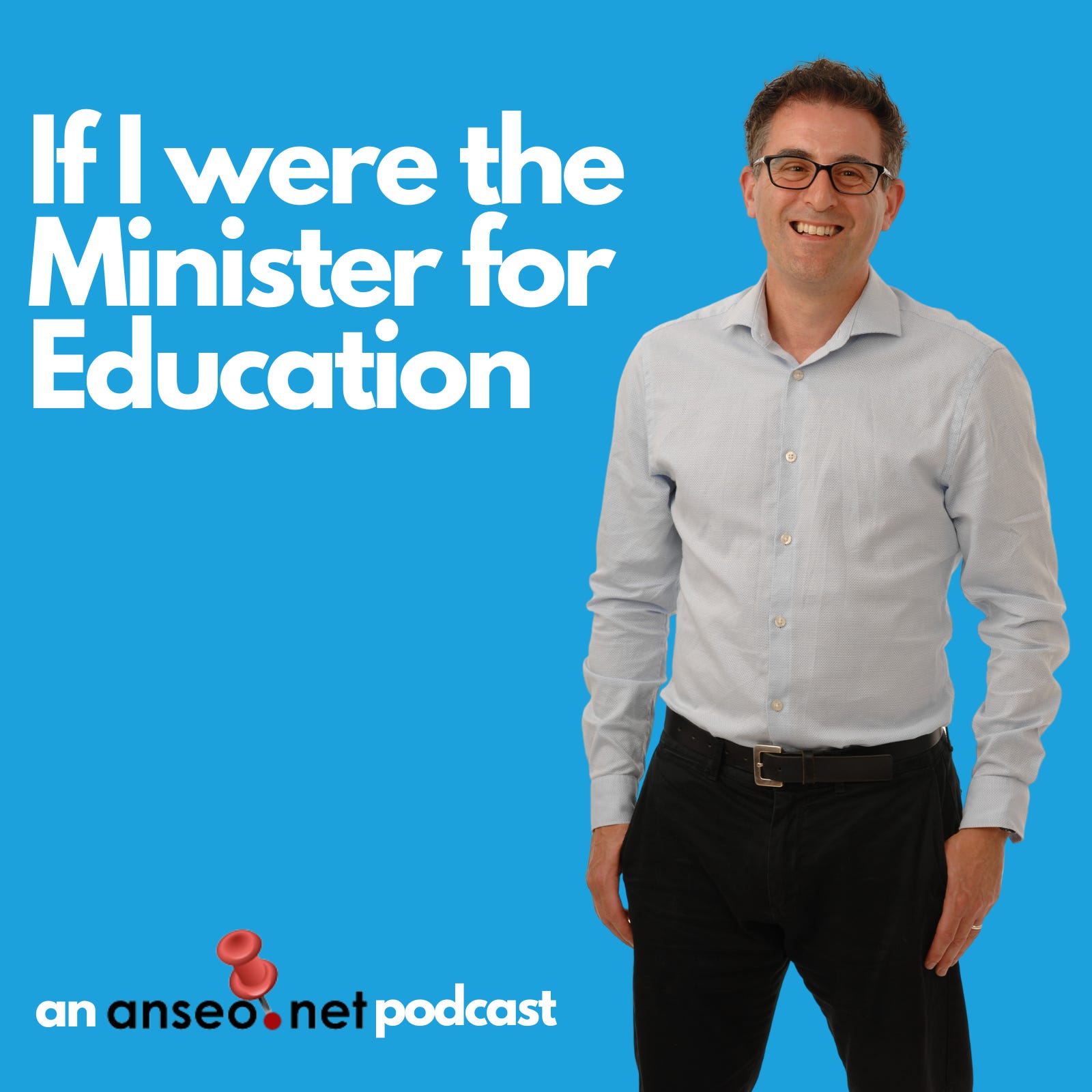

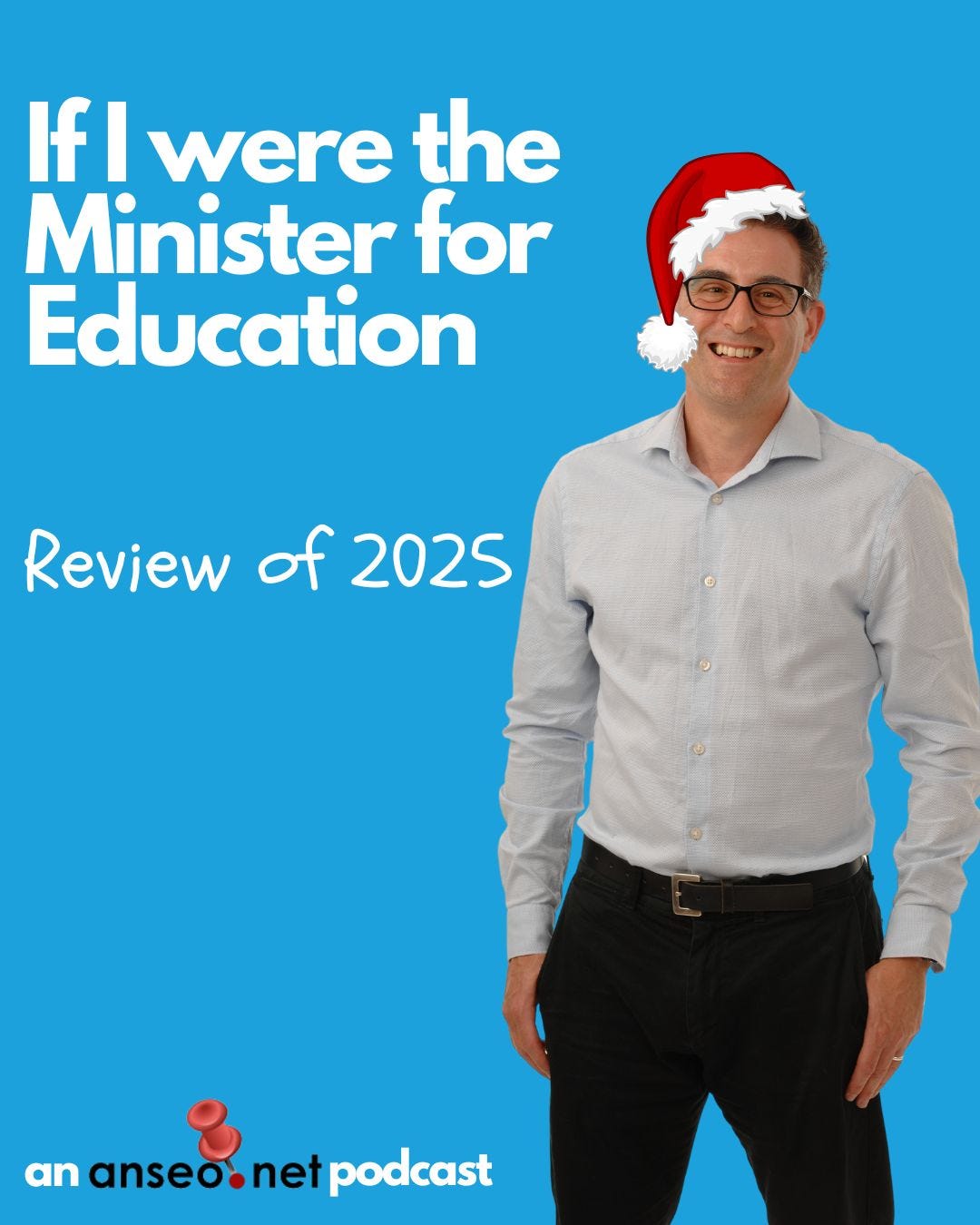
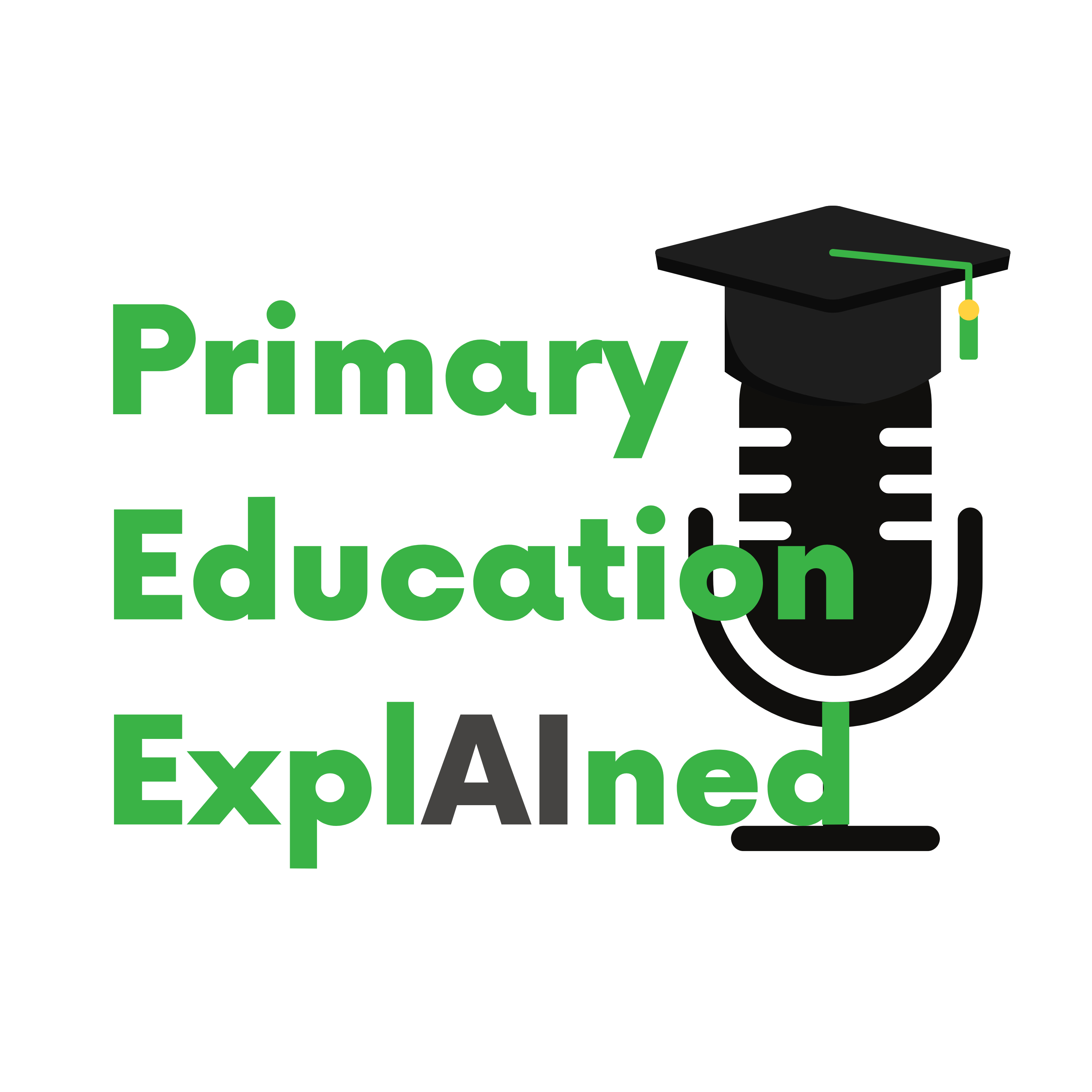



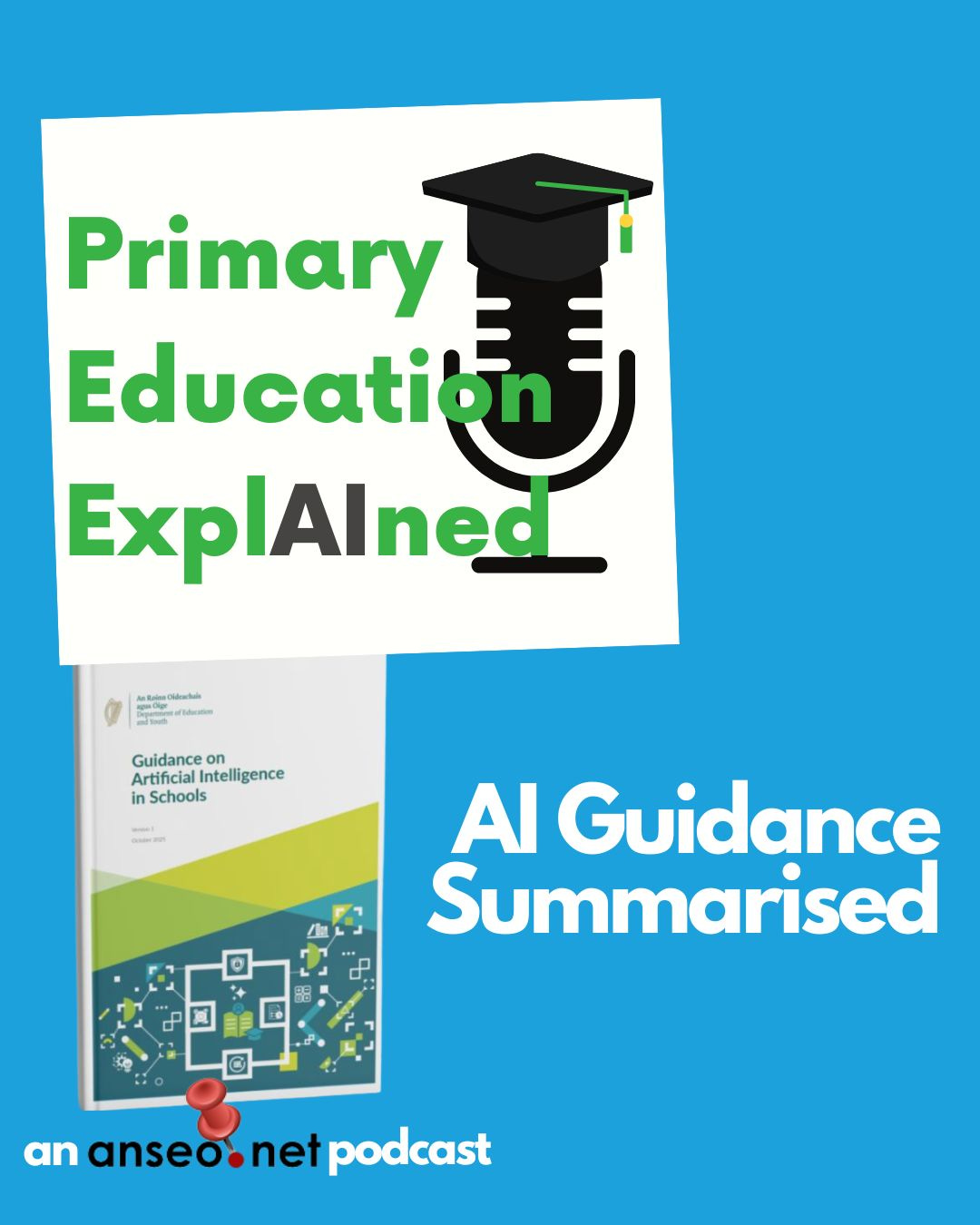
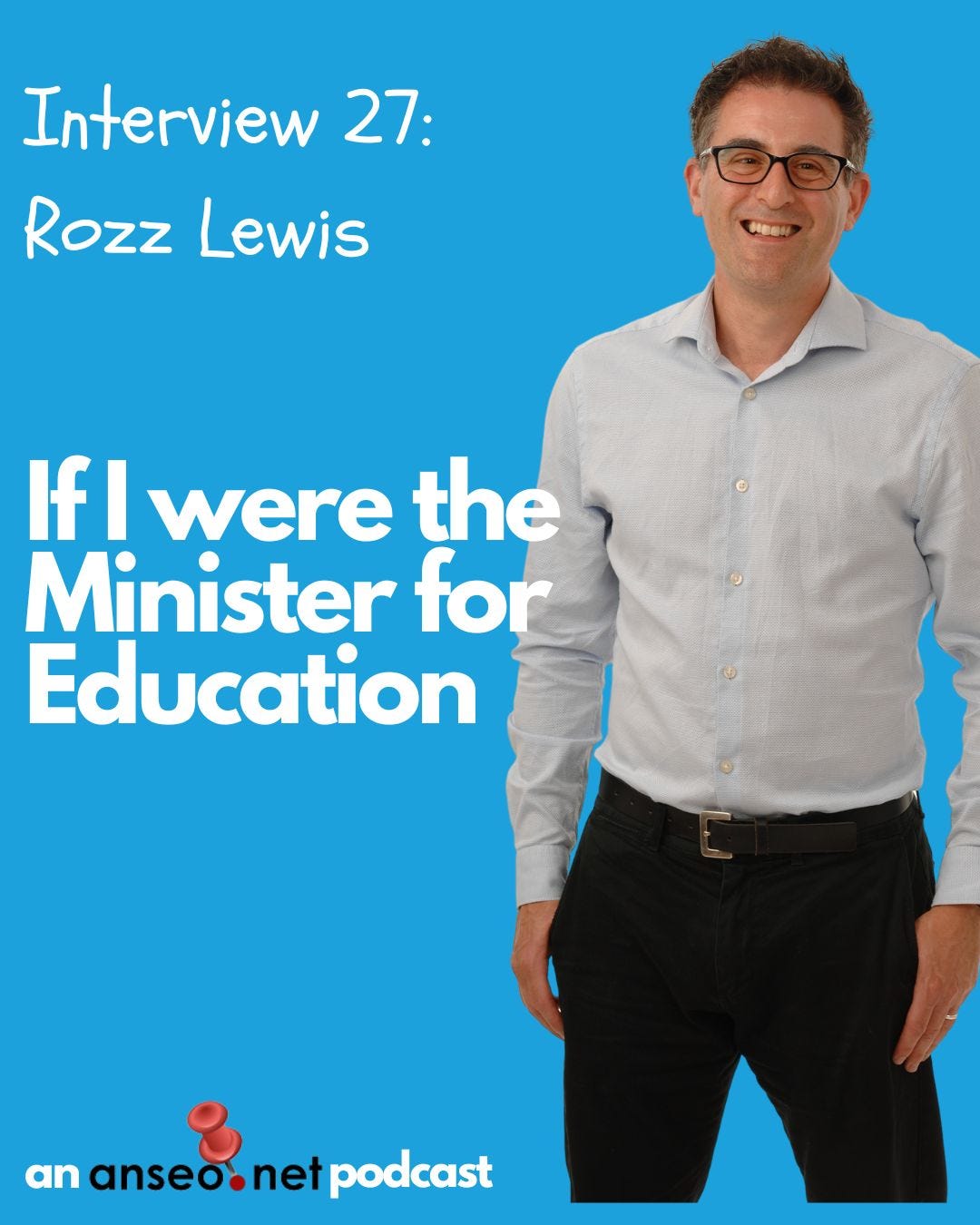




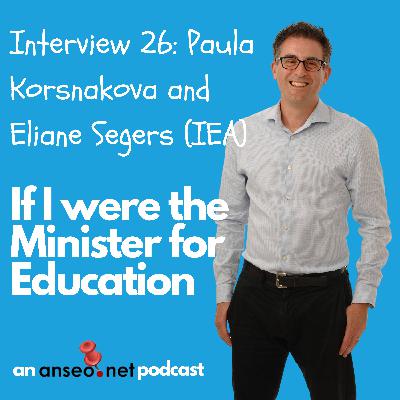
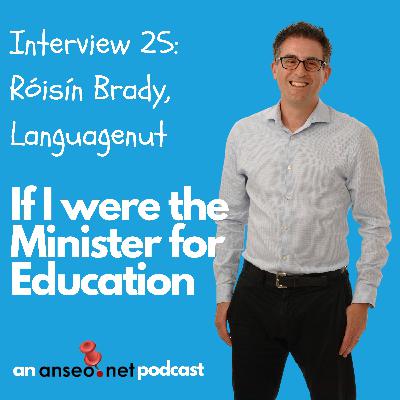
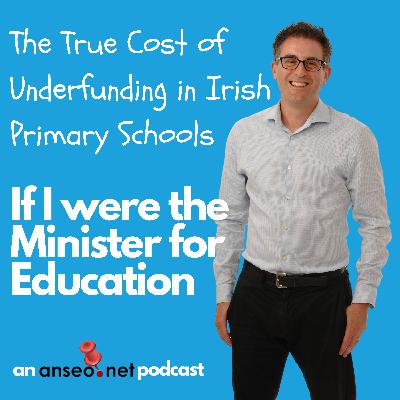
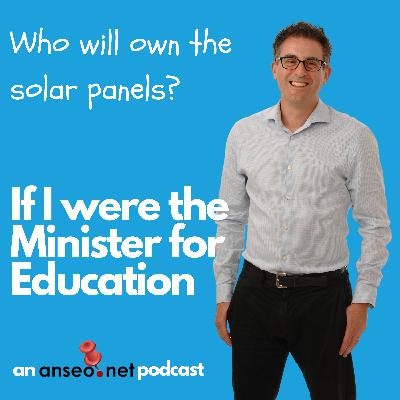
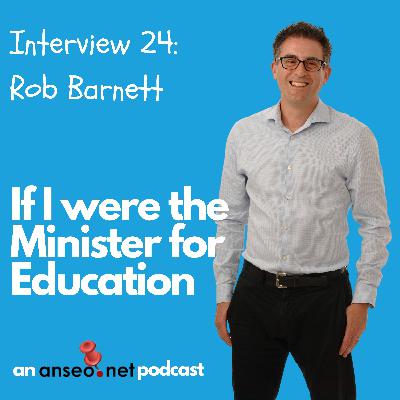
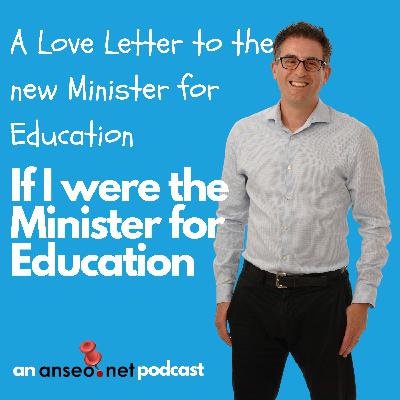




Loved the first episode on Finland Simon and I'm really looking forward to listening to this one too!
Excellent first episode!